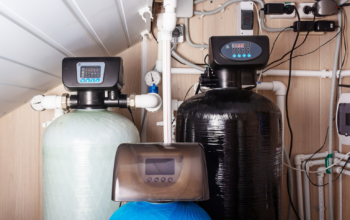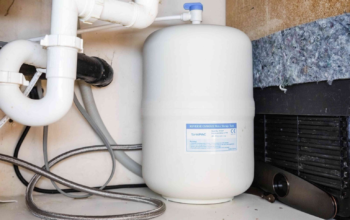If you live in Florida—or even visit for more than a weekend—you’ve probably had at least one moment with your tap water that made you pause. Maybe you turned on the shower and caught a whiff of something odd. Or you filled a glass at the sink and thought, Hmm… that’s not how water should smell.
Whether it’s faint and harmless or strong enough to raise an eyebrow, Florida’s water smell is one of those strangely universal experiences. It’s something residents joke about, tourists are confused by, and new homeowners spend weeks Googling for answers.
But behind the confusion is a surprisingly simple explanation rooted in geology, chemistry, and Florida’s unique water sources.
Let’s take an easy, human, unfiltered walk through the reasons behind the state’s famously quirky water smell—without panic, without jargon, and with a little empathy for anyone who’s tried to shower through it.
That First Sulfur Scent: When You Start Noticing Something’s “Off”
Most people remember the first time they encountered Florida’s water smell. It’s never dramatic. It sneaks in quietly—maybe while washing your hands, maybe while running hot water, maybe in a small utility sink you barely use.
You wrinkle your nose.
You tilt your head.
You maybe smell the faucet again just to be sure.
And then you start wondering: why does florida smell like sulfur in so many places? Is something wrong with the pipes, the city system, your home… or is this just Florida being Florida?
Spoiler: it’s mostly Florida being Florida.
The Real Culprit: What’s Happening Beneath the Ground
Florida sits on top of enormous underground aquifers—deep, porous limestone formations that store the state’s drinking water. These aquifers are rich in minerals and organic materials. When those materials break down, they release small amounts of hydrogen sulfide gas.
That gas is what creates the sulfur smell.
It’s natural.
It’s common.
And it’s incredibly potent, even in tiny doses.
This explains why some people notice the scent even when sulfur levels are scientifically low—our noses are just sensitive to it.
This natural process also helps explain why sulfur water florida is such a common phrase among residents looking for solutions.
Why Orlando’s Water Sometimes Has That “Eggy” Aroma
If you live around Central Florida, you’ve probably wondered at one point or another: why does orlando water smell different from what you’re used to? Orlando draws water from the Lower Floridan Aquifer, which carries varying levels of sulfur from location to location.
Some neighborhoods have totally neutral-smelling water.
Others have a mild sulfur scent.
Some experience stronger odors after rainfall or seasonal changes.
It isn’t because Orlando’s water is poorly treated. In fact, the treatment process is extremely rigorous. It’s simply that the water starts with these natural compounds, and removing them entirely—without affecting taste or water chemistry—can be challenging.
Why the Smell Is Stronger in Hot Water
Have you noticed the odor is most noticeable when the water is warm?
There’s a reason for that.
Heat releases sulfur gases more easily. So when you shower, run hot water in the sink, or use the dishwasher, hydrogen sulfide becomes more aromatic. Water heaters make this even more noticeable because certain types of anode rods can react with sulfur compounds inside the tank.
So even if your cold tap smells fine, your shower might tell a different story.
Why Some Houses Smell and Others Don’t
One of the most frustrating parts is inconsistency. You might visit a friend in another part of town with odor-free water and wonder why your home is different.
It often comes down to:
– well water vs. city water
– depth of the local aquifer
– mineral composition in that part of Florida
– age of plumbing systems
– water heater type
– how long water sits in pipes
– seasonal shifts in groundwater
– stormwater influence after heavy rains
No two homes draw water in exactly the same way, and the slightest difference can completely change the smell.
Does the Smell Mean the Water Is Unsafe?
The sulfur smell is almost always harmless. Hydrogen sulfide at low levels isn’t dangerous—it’s just rude to your nose.
Still, water is something we interact with dozens of times a day.
You drink it.
Cook with it.
Shower in it.
Wash your clothes in it.
So even if it’s safe, the smell can disrupt your sense of “clean.” Water should feel refreshing, not questionable.
That’s why so many Florida homeowners choose filtration—not because they’re afraid, but because they want comfort, consistency, and peace of mind.
Wells Make the Smell More Noticeable
Private wells often produce stronger sulfur smells than city water because the water goes straight from the earth into your plumbing without municipal treatment. Well water is natural, raw, and rich in minerals—sometimes too rich.
The smell is more common the deeper the well goes, especially in rural or wetland-adjacent areas.
It’s natural, but not always pleasant.
Why the Smell Comes and Goes
Just when you think your water has behaved for a week, the smell returns. It’s not random—Florida’s aquifers respond to rainfall, drought, storms, shifts in pressure, and even temperature changes.
During summer rains, aquifer levels rise.
During dry seasons, the water comes from deeper layers, where sulfur is stronger.
During storms, organic material shifts, altering water chemistry.
Florida water is alive in a way—not static.
Ways People Reduce or Eliminate the Sulfur Smell
Here’s the good news: you don’t have to live with sulfur water forever. Technology has made it incredibly easy to filter out smells and improve taste.
Popular solutions include:
– Activated carbon filters (great for mild odors)
– Air injection oxidizers (excellent for moderate sulfur levels)
– Chlorination or peroxide systems (used for strong well sulfur)
– Replacing water heater anode rods
– Whole-home filtration systems for long-term stability
Once installed, the difference is immediate.
Showers smell clean again.
Water tastes crisp.
Laundry smells fresher.
And your home feels “normal” again.
Living with Florida Water—But Making It Better
Florida’s landscapes are beautiful, but its water comes with some quirks. The sulfur smell isn’t dangerous, but it can interrupt your comfort and make everyday moments a little less enjoyable.




